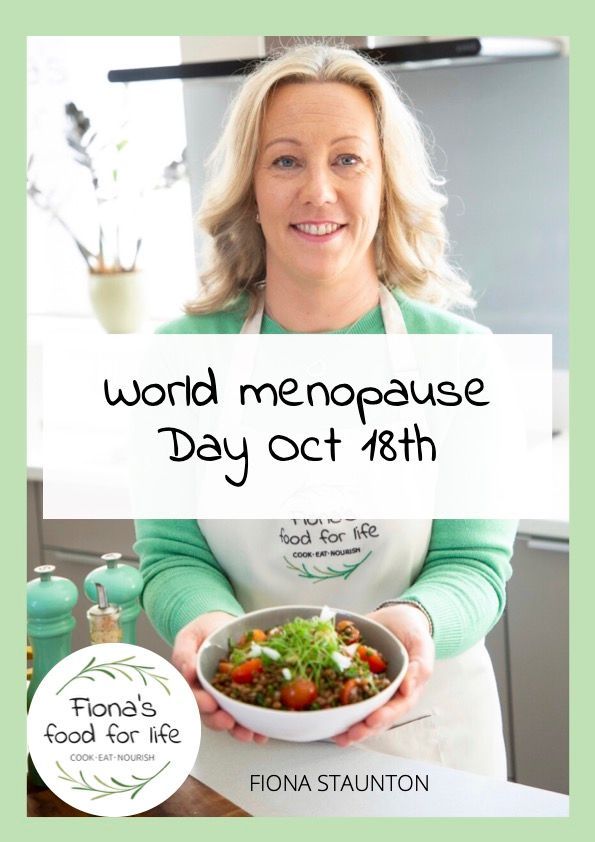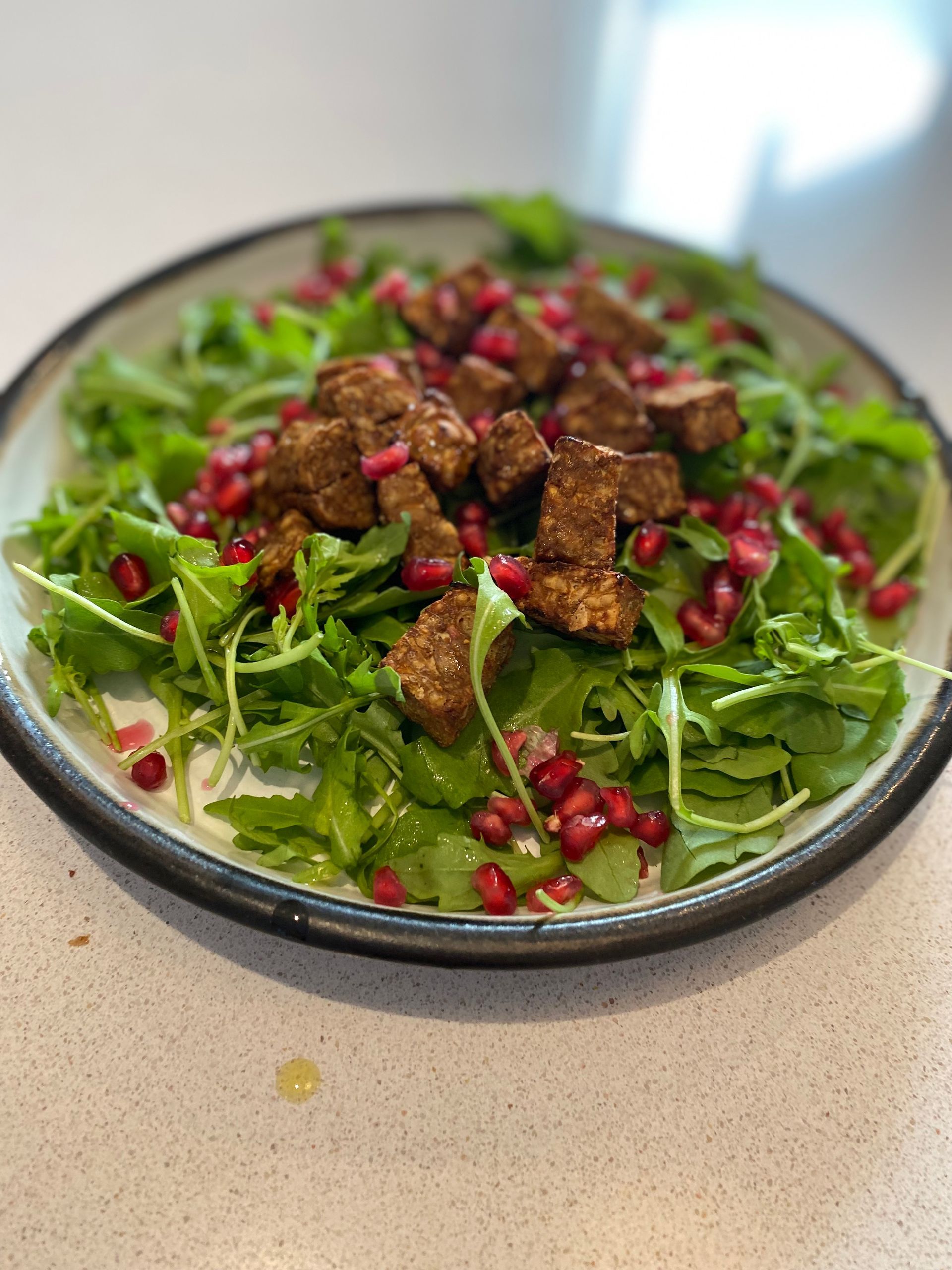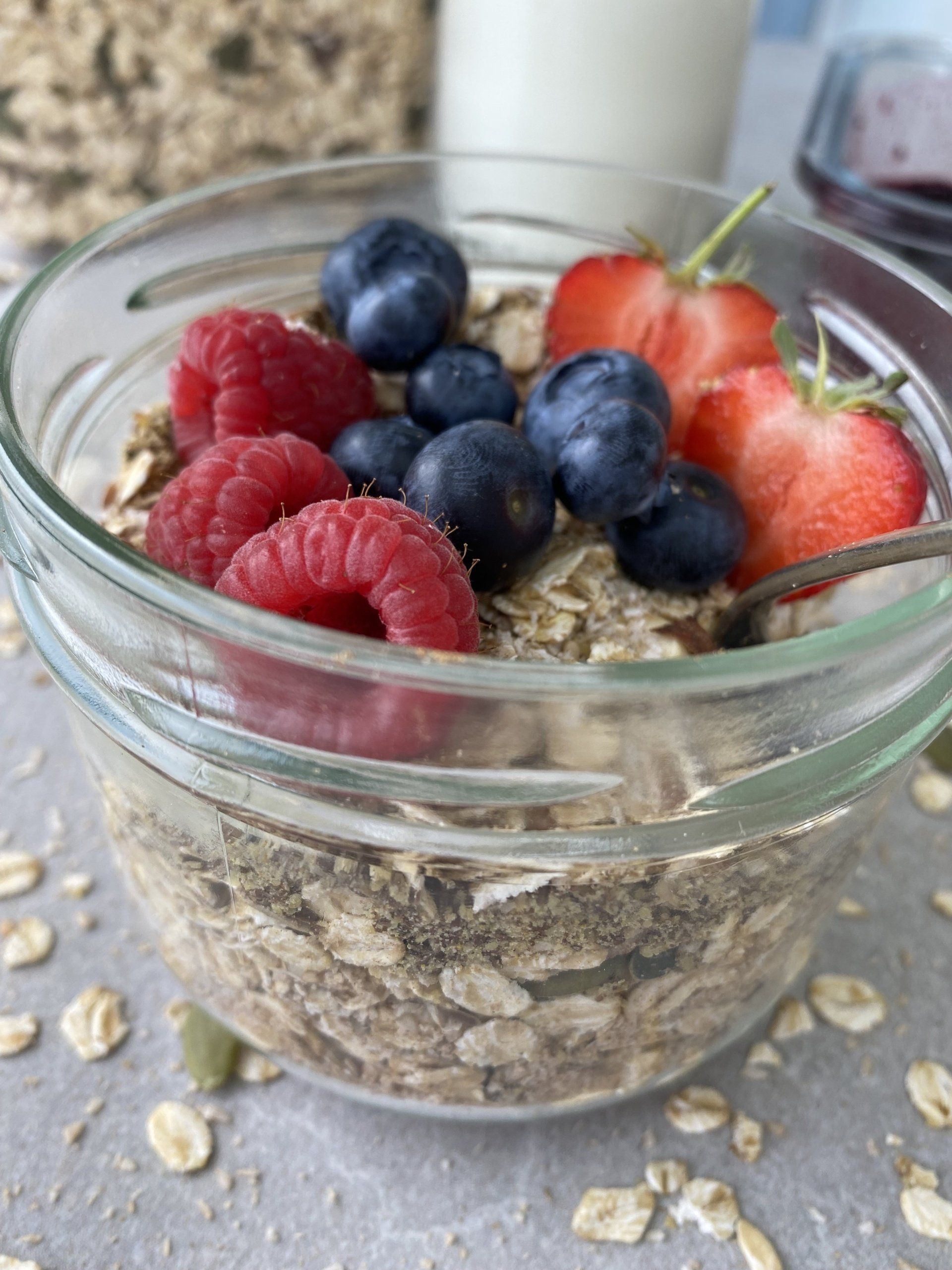What is the best breakfast for menopause
This is a question I am often asked when people inquire about my menopause cooking course

Menopause is a natural biological process that occurs in women as they age, typically between the ages of 45 and 55. During this time, a woman's body undergoes significant hormonal changes, which can lead to a range of physical and emotional symptoms. While there is no single "best" breakfast for menopause, there are some foods that may be particularly helpful in mitigating the symptoms associated with this stage of life.
One of the key considerations for women going through menopause is to maintain a healthy weight. Hormonal changes during this time can make it more difficult to lose weight or maintain a healthy weight, and excess weight can exacerbate symptoms like hot flashes and night sweats. Therefore, a healthy and balanced breakfast can help set the tone for the rest of the day and support overall health.
Whole grains are an excellent choice for menopausal women, as they provide fiber and complex carbohydrates that can help regulate blood sugar levels and promote digestive health. A bowl of whole grain cereal or oatmeal with milk is a great way to start the day. Oatmeal, in particular, is a good source of phytoestrogens, which are plant compounds that mimic the effects of estrogen in the body. While the evidence is mixed on the efficacy of phytoestrogens for menopausal symptoms, some women find that they can be helpful. Overnight oats are a great option, and not just for breakfast! My banana and blueberry pancakes are popular too for when you have some time.
Protein is another key nutrient for menopausal women, as it can help with muscle maintenance and repair. Greek yogurt is an excellent source of protein and can be paired with berries and nuts for added nutrients. Berries provide antioxidants, which can help reduce inflammation in the body, and nuts provide healthy fats that can help support brain health and reduce the risk of heart disease.
Eggs are another great source of protein and healthy fats, and can be paired with spinach and whole wheat toast for a satisfying and nutritious breakfast. Spinach is rich in vitamins and minerals that can support overall health, and whole wheat toast provides fiber and complex carbohydrates that can help regulate blood sugar levels. Learn how to make an omlette 3 ways and poached eggs with my recipes.
For women who prefer a lighter breakfast or are short on time, a smoothie can be a great option. I love adding milk kefir, containing probiotics and healthy fats, spinach provides vitamins and minerals, and berries provide antioxidants. Here is a fruit based milk kefir smoothie recipe. Adding protein powder can help with muscle maintenance and repair. I suggest making sure you have 5 portions of fruit and veg, of which two are veg! I go through this in detail on my 6 week cooking for perimenopause and beyond course
In addition to considering specific foods, menopausal women may also want to pay attention to their overall dietary patterns. The Mediterranean diet, which emphasizes fruits, vegetables, whole grains, lean proteins, and healthy fats like olive oil and nuts, has been shown to be particularly beneficial for women going through menopause. This way of eating is rich in nutrients that can help reduce inflammation, support brain health, and reduce the risk of chronic diseases like heart disease and diabetes.
In addition to paying attention to diet, menopausal women may also want to consider other lifestyle factors that can impact their overall health and well-being. Exercise is particularly important during this time, as it can help with weight management, reduce the risk of chronic diseases, and improve mood and sleep. Stress management techniques like meditation or deep breathing can also be helpful for reducing the severity of menopausal symptoms.
It's worth noting that menopause is a highly individual experience, and what works for one woman may not work for another. Therefore, it's important to pay attention to your own body and make choices that support your overall health and well-being. If you're experiencing severe or persistent symptoms, it's also a good idea to speak with your healthcare provider to discuss potential treatment options.
With the right combination of diet, exercise, and lifestyle changes, however, many women find that they can successfully manage the symptoms associated with menopause and enjoy a healthy and vibrant life.









